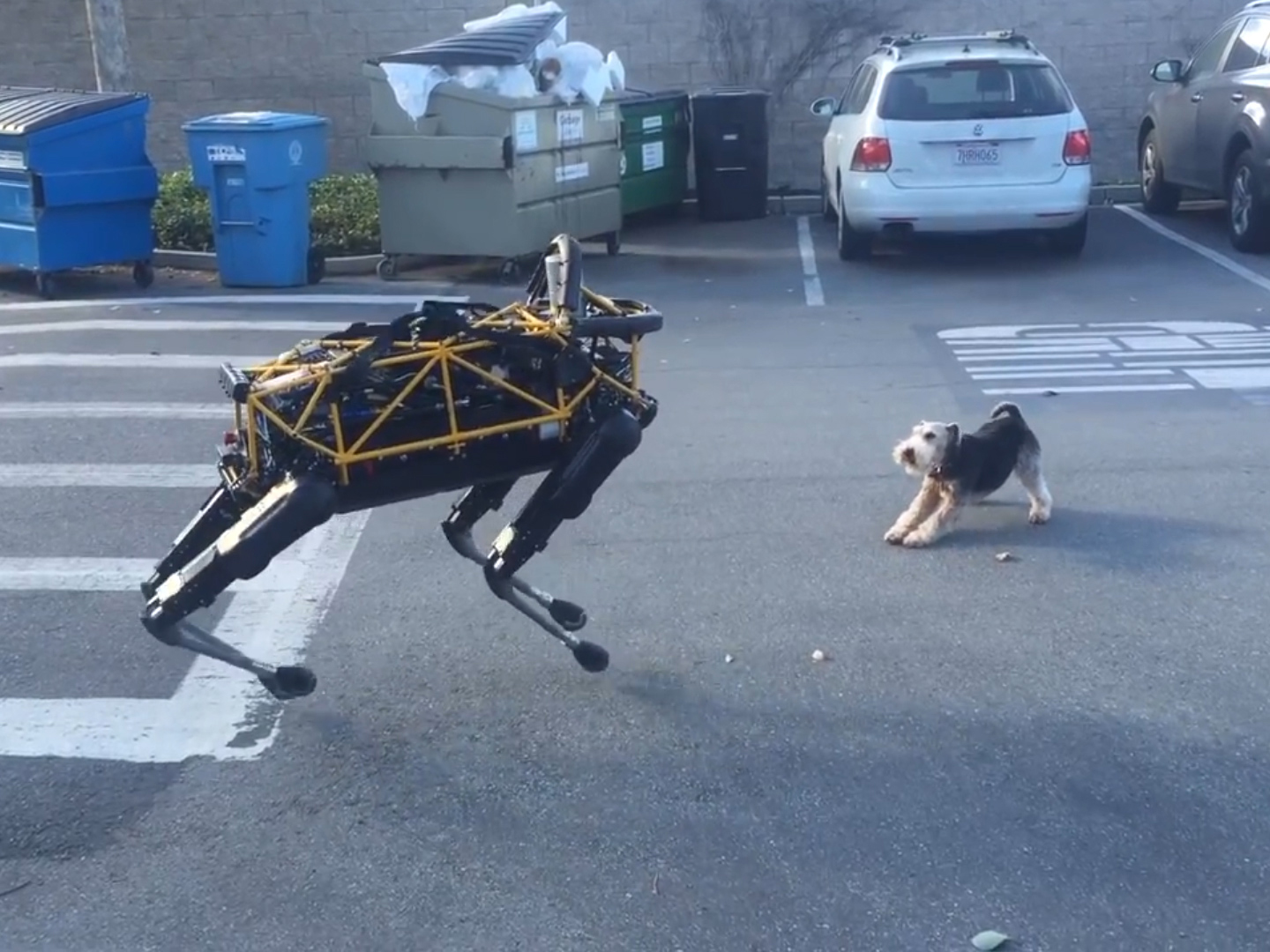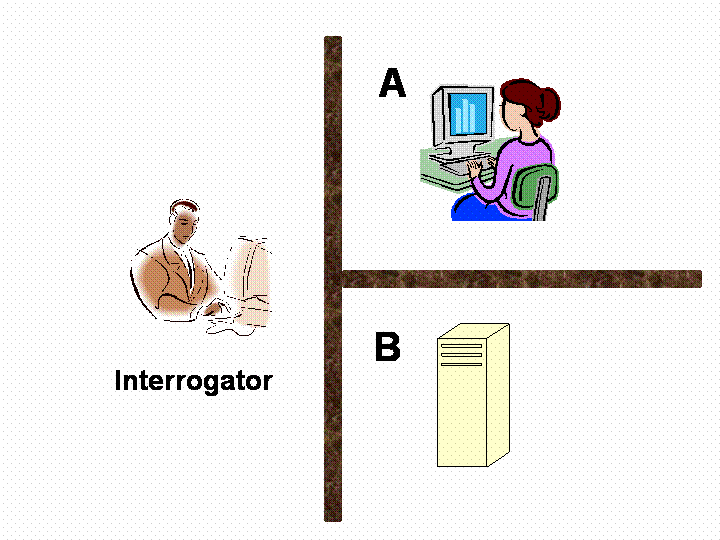Redefining Artificial Intelligence (AI)
Published on February 17,2018

What if someday you wake up as usual and headed toward the kitchen, but instead of greeting the human face of your child’s nanny, you are whacked by a humanoid face of Sofia or a rather gross Everest-topographical look of lieutenant Saru. Either way, the message is clear enough; they are finally here. Right from Pandora’s Box, or the Hollywood’s Pentagram, the aliens have fallen upon Mt. Hermon and are ready to alienate us. But if we all give it this grotesque look then all might be lost. All that admirable human creation, you so twist your lips into a disfigured state just to refer to as ‘AI’; will, by itself or by your own self-declaration, cease to be your own creation and will indeed graduate to aliens. I am simply calling for a learned look into what we all know as Artificial intelligence (AI). There is the ‘other’ look; not that it is unlearned, but… “AI is here to disown us of our jobs. Those things are dangerous. They will terminate you and your family. It is a discreet weapon from the elite, the top 1% of the top 1%. They are summoning the demons…” All these claims are worth a detective’s time. What of this other thinking, “You simply automate that boring stuff. Let it handle it for you without a mistake. Superfast and fearless. Marvellous. Terrific. Not barred by emotions. My enchanted creation…Ahem, my love.” So which of the two thoughts is dangerous? Let’s explore this further.
What really is Artificial Intelligence?
First coined by McCarthy in 1956, the term is composed of an adjective (that which describes a noun), Artificial, and a noun, Intelligence. When you say artificial, you mean something fake. A copy of a natural instance. Say, for example, a motor assembly welding robot, it is a copy of a human welder. Humanoid robots like the Terminator is a copy of the human. Autonomous driving car system is a copy of the human driving intellect. Artificial human heart/any other organ is a copy of the natural, God-given human organ. A robotic swimming fish is a copy of that fish which you ate last night’s supper. But what really is intelligence? Simply put, it is that which characterizes the human. Really? I seriously disagree.
Something wrong with intelligence
Many (even the AI experts) say that intelligence is that which characterizes the human. The Oxford Advanced Learners dictionary definition of intelligence is the ability to learn, understand, and think in a logical way about something. If this is so, then why is there emotional intelligence? As far as science is concerned, emotional and logical thinking are completely different, but they always interplay in every human decision or one overrides the other as per this article. Or emotional intelligence is simply emotions at play? But what are emotions if not what makes up the irrational being that we all happen to be? When you really have intelligence on something then you must be both logically and emotionally equipped to handle that thing. And, does it only characterize the human? Consider the following tests:
Testing the strange dog
I was once on my way to trash some bones after a merciless carnage of some animal, the dice of its meat, then gabling and finally the engorging of the same. On my way, I met a strange-looking dog. We stood there and stared at each other for about half a minute. I then signalled unto the dog to come for the bones. It stood there for another half a minute and then dashed away. It left me with the bones, its favourite food.
From this scene, it is very clear that the dog acted very logically other than emotionally. What was it thinking for that whole minute (in total) anyway? “Are those bones!!? I really miss them, it has been a while since that wretched old man cared to prepare me some! Why is this creature looking at me helplessly anyway? Does it want to devour me also? Are those bones poisoned? Now, why is it calling me? Is it not just looking for an opportunity to stone my back? Or am I to be captured and diced like my friend? No, let the bones be…I will be back!!” emotions would dictate that the dog would give in. Yet it did not. Anything that conflicts emotions is logic. And here it is, in a dog.
The hunter’s test
If you take a totally inexperienced dog (the likes of which would bark at nothing at the sight of food, just to get a bite, “I’m not missing this again”) out for a hunting journey with other experienced dogs. The first thing you would notice when a hare jumps out of its place of stay is that; your dog will be utterly confused. Doesn’t even know what to do. Some might even bark back at you for a suggestion on an appropriate course of action. The story goes that it will follow the other dogs and might come back with some nasty look on the face or just some injury as the reward for your meat’s share. The next time you take the dog out for hunting, even if alone, you will, for sure, be back with something (don’t ask what, you know it). So, what happened on this second trip? The dog had learnt from the experiences of the previous trip, understood the ways of hunting, and acted in a logical way in order to pounce on the unlucky, unable-to-do-nothing-but-run hare. Pure logic way also applied in order to avoid the injury. So, is intelligence only applicable to the human?
So, is it Artificial Human Intelligence (AHI, pronounced ‘ahy’) or Just AI?
From the above case scenarios, it is clear that intelligence is that which characterizes the creation rather than the human alone. That which characterizes the human is the ‘will’.

When one designs a robotic dog that emulates all the behaviours of a dog do we categorize that dog as an AI product? If we do so, then we risk falling out of the common definition of AI which directly links itself solely to the human. Artificial intelligence should, therefore, be subdivided into two major categories. One that talks about Human Intelligence or Artificial Human Intelligence (AHI) and another that relates to the other animals’ intelligence, say Artificial Animal Intelligence (AAI). For sure in the near future, products emulating other animal intelligence will fill the market hence necessitating the differentiation of this field of AI. So what is this AI anyway?
Approaches of AI/AHI
One view is that artificial intelligence is about designing systems that are as intelligent as humans. This view involves trying to understand human thought and an effort to build machines that emulate the human thought process. This view is the cognitive science approach to AI.
The Turing test
The second approach is best embodied by the concept of the Turing Test. Allan Turing held that in future computers can be programmed to acquire abilities rivalling human intelligence. As part of his argument, Turing put forward the idea of an 'imitation game', in which a human being and a computer would be interrogated under conditions where the interrogator would not know which was which, the communication being entirely by textual messages. Turing argued that if the interrogator could not distinguish them by questioning, then it would be unreasonable not to call the computer intelligent. Turing's 'imitation game' is now usually called 'the Turing test' for intelligence.

Consider the following setting. There are two rooms, A and B. One of the rooms contains a computer. The other contains a human. The interrogator is outside and does not know which one is a computer. He can ask questions through a teletype and receives answers from both A and B. The interrogator needs to identify whether A or B are humans. To pass the Turing test, the machine has to fool the interrogator into believing that it is human. The third approach deals with Logic and laws of thought. These deals with studies of ideal or rational thought process and inference. The emphasis, in this case, is on the inferencing mechanism and its properties. That is how the system arrives at a conclusion, or the reasoning behind its selection of actions is very important in this point of view. The soundness and completeness of the inference mechanisms are important here. The fourth view of AI is that it is the study of rational agents. This view deals with building machines that act rationally. The focus is on how the system acts and performs, and not so much on the reasoning process. A rational agent is one that acts rationally, that is, is in the best possible manner.
There has been a fuss on the future of AI, that is, whether AI is our future existential threat or not. Well, this is not a subject worth debating on before one understands where AHI has so far reached, its limitations and its potent in the future. Efforts have also been made by the likes of Elon Musk and Bill Gates to sponsor good projects like Open AI, just to ensure that this speculation doesn’t come true. These and other more, like the scenario in the opening paragraph, I plan to explore in part two of this article. Have a nice read.